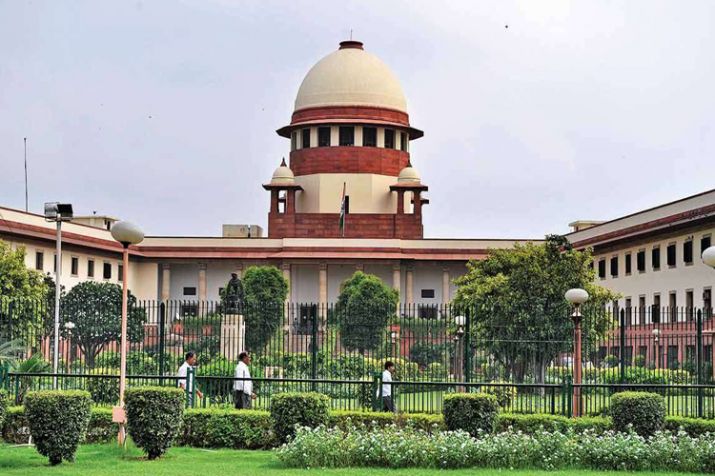Now Reading: The Higher Education Commission of India Bill, 2018: AVANT-GARDE or REACTIONARY?
-
01
The Higher Education Commission of India Bill, 2018: AVANT-GARDE or REACTIONARY?

The Higher Education Commission of India Bill, 2018: AVANT-GARDE or REACTIONARY?
In the wake of bringing revolutionary changes in the nation, by the present government, led by Prime Minister Narendra Modi, another landmark step is all set to be taken, specifically in the education sector. The Ministry of Human Resource and Development has floored the Higher Education Commission of India (Repeal of University Grants Commission Act) Bill 2018, (HECI) in the public domain to invite comments and suggestions with respect to the same, after having the draft approved by the Government. This step came amidst several other steps taken by the Central Government towards better governance of the education sector, such as NAAC reform, Graded Autonomy grant to Universities, grant of Autonomous status, Open degrees and distance learning, Online degree education etc. The HECI bill seeks to repeal the UGC Act, which had been governing the establishment, functioning and growth of colleges and Universities across the nation for over six decades now. As statistics show, enrollment in educational institutions has skyrocketed in the past two decades, figures shooting up from 8.1% to 24.3%. However, the government’s concern lay in the quality of education that was being imparted and not the quantity of students enrolled.[1] The primary objective behind preparing the HECI is subtracting government regulation from education, as far as possible, while improving education standards and setting a uniform standard of evaluation across the nation, rather than focusing their attention on grant-giving.[2]
Before going ahead to know about this bill, let us look at the issues & challenges of Indian Higher Education.
Issues and challenges before higher educational sector in India
The Standing Committee on Human Resource Development (Chair: Dr. Satyanarayan Jatiya) submitted its report on ‘Issues and challenges before higher educational sector in India’ on February 8, 2017. The report examined the challenges of higher education in India after studying the higher education institutions in Hyderabad, Chandigarh, Patiala, Thiruvananthapuram, Udaipur, Chennai, Vishakhapatnam, Bhopal and Indore. The Committee also interacted with public sector banks regarding the education loan facilities being provided to students for higher education. The key observations and recommendations of the Committee are as follows:
- Shortage of resources: Bulk of the enrolment in higher education is handled by state universities and their affiliated colleges. However, these state universities receive very small amounts of grants in comparison. Nearly 65% of the University Grants Commission (UGC) budget is utilised by the central universities and their colleges while state universities and their affiliated colleges get only the remaining 35%. The Committee recommends that the mobilisation of funds in state universities should be explored through other means such as endowments, contributions from industry, alumni, etc.
- Teacher vacancies: According to UGC, the total number of sanctioned teaching posts in various Central Universities are 16,699 for professors, 4,731 for associate professors, and 9,585 for assistant professors. Out of the total sanctioned teaching posts, 5,925 (35%) professor posts, 2,183 (46%) associate professor posts and 2,459 (26%) assistant professor posts are vacant.
- The Committee reasoned that this could be due to two reasons: (i) young students don’t find the teaching profession attractive; or (ii) the recruitment process is long and involves too many procedural formalities. The recruitment process should start well before a post is vacated. In addition, to make the profession of teaching more lucrative, faculty should be encouraged to undertake consultancy projects and be provided financial support for start-ups.
- Accountability and performance of teachers: At present, there is no mechanism for ensuring the accountability and performance of professors in universities and colleges. This is unlike foreign universities where the performance of college faculty is evaluated by their peers and students. In this context, a system of performance audit of professors based on the feedback given by their students and colleagues should be set up. Other inputs like research papers, publications by teachers should be added in the performance audit in due course of time.
- Lack of employable skills: Lack of employable skills in students of technical education has been observed. Identification of skill gaps in different sectors and offering courses for enhancing employability in them has been recommended. Some strategies in this regard can include: (i) Industry Institute Student Training Support, (ii) Industrial Challenge Open Forum, (iii) Long Term Student Industry Placement Scheme, and (iv) Industrial Finishing Schools.
- Accreditation of institutions: The Committee notes that accreditation of higher educational institutions needs to be at core of the regulatory arrangement in higher education. Further, quality assurance agencies should guarantee basic minimum standards of technical education to meet the industry demand for quality manpower. The National Board of Accreditation should act as a catalyst towards quality enhancement and quality assurance of higher technical education.
- Credit rating agencies, reputed industry associations, media houses and professional bodies should be encouraged to carry forward the process of rating of Indian universities and institutions. A robust rating system will give rise to healthy competition amongst universities and help improve their performance.
Salient features of Bill
- The main focus of the established commission is to lie upon improvement of academic standards and quality of imparting higher education. It aims to specify certain standards to be followed for learning/teaching/research etc.
- The Commission shall have the ultimate power to enforce its decision through the legal provisions which are also laid down in the Act.
- In case an institution has failed to maintain the required threshold of academic standards, the Commission shall provide with a roadmap that would mentor such institutions.
- The Commission possesses the power to initiate academic operations by granting authorizations, based on compliance of academic quality standards. Additionally, it has the powers to revoke granting authorization to any institution failing to comply with the standards continuously or willfully.
- The Commission shall hold the power to direct the closure of higher education institutions which fail to comply to minimum standards, with due regards to students’ interests at the same time.
- Encouragement to formulate Code of Good Practices by Higher Education Institutions, including promotion of research, learning, teaching.
- The Commission is to be composed of Chairpersons of regulatory bodies such as AICTE and NCTE. Additionally, Vice-Chairpersons and members are to be scholars of eminence, having outstanding knowledge in academics, research and possess leadership skills and understanding of the issues in higher education practice.
- Penal provisions are laid down, which includes withdrawal of power to grant degrees and diplomas; or orders to cease academic operations. In case where non compliance is wilful, sanctions for prosecution may be imposed as per the provisions of the Criminal Procedure Code.
- Advisory Council to provide advice to the Commission on specific matters, represented by Chairpersons/Vice-Chairpersons of State Councils for Higher Education and to be chaired by the Union HRD Minister.[3]
- Specifications are provided with respect to processes to fix the chargeable fees by higher education institutions and other such steps which shall enable education to be affordable to the masses.
- The Commission has the power to monitor all the matters which cover development of emerging spheres in higher education and promotion of the same by way of national data base.
Fundamental flaws in the UGC act
In essence, the main functions of the proposed HECI aim at autonomy of higher education institutes. Wherein even the older UGC Act aimed to maintain standards of education, the HECI specifically lays down the areas to be regulated.[4] Further, the HECI proposes to lay down minimum qualifications in order to recruit faculty members and also set up standards to judge performance of the faculty and thus, incentivise them. The UGC Act, although had similar standards, but in essence, it has practically discouraged diversity and innovativeness in teaching.[5] Moreover, the HECI Bill has specified norms and processes to fix fee structures, which is one of the striking aspects of the Bill. The UGC had similar regulations of fee structures, however the educational institutes had found their ways to surpass regulations and introduce self-financed courses.[6]
The UGC had been established as a result of the Radhakrishnan Commission Recommendations. In the purview of the same, Universities were majorly affiliated bodies and teaching only pertained to post-graduate teaching. The Colleges were isolated and controlled by UGC Rules and other professional councils. Now, in effect, the UGC Regulations managed to curb the autonomy of institutions in terms of innovativeness, program structures etc. Thus, to a great extent, it hindered interdisciplinary learnings and education quality suffered. To contextualize, it can be stated that the UGC’s main function lied in providing grants by the end of six decades of its functioning, and several of its functions, which it had aimed to fulfill, remained unfulfilled and the education sector suffered.[7]
Advantages of implementation of the HECI
The HECI in its draft Bill has some interesting points of observation, which if implemented successfully, shall prove to be highly advantageous for the education sector of the nation. first point of observation is involvement of the government as less as possible, thus downsizing the role of a regulator. The Government shall have no interference in the management of educational institutions. The HECI would primarily focus on academic matters and the grant functions would be handled by the Ministry of HRD. Furthermore, any kind of regulation would be disclosed to the public, so that everything is transparent and decisions of standards and quality of higher education would be based on merit. Overall, the HECI shall mandate improvement of academic standards and focus on evaluation, performance, mentoring, training, technology etc. There shall be greater flexibility and autonomy as well. Adding to it, there shall be powers to enforce the compliance of provisions of this Act and non-compliance to attract penal sanctions.[8]
The downsides of the bill
The UGC had several shortcomings such as insufficient funds, excessive bureaucracies, delay and inability to regulate private, self-financing institutes mostly ran by powerful politicians notable among which are inadequate funding, a tendency to micromanage universities and colleges through detailed regulations, excessive bureaucratisation leading to delays and inability to regulate private, self-financing institutions, many of which are owned and run by powerful politicians. However, the HECI has also failed to address these problems; moreover, it may aggravate some of them. The purpose of the HECI can be interpreted as a tool to empower the Centre and reduce the states to being functionless. India’s area and diversity does not enable excessive centralisation to be an improvement of academic standards. Rather, it will lead to even more corruption, bureaucratisation and red tapism.
It has been vehemently stated by critics that the HECI essentially brings down the grade of Universities to that of colleges, combining them together and applying uniform rules to them. The present Universities require authorisations from the HECI for their current courses within three years, failing which, they’ll have to terminate the courses. Now, such kind of an authorisation by the course is both unnecessary and inconvenient for universities. Moreover, the HECI has neither the time nor the expertise to process such lakhs of requests. Additionally, a basic principle of good governance is being contravened by the Bill, which entails a subsidiary function to the central authority to perform tasks unable to be performed at local levels. In a federal setup, such an extreme case of centralisation is unacceptable.[9]
In the wake of speedy economic growth, India’s education system needs to produce an educated workforce who are eligible to accentuate such growth. Any new policy, thus, needs to have a progressive and revolutionary approach. The current HECI Bill, duly separates the areas of grants and quality control, however, the country’s excessively low education enrolment rate needs innovative changes to have improvements.[10] And that requires multidisciplinary institutes, not excess regulation for single disciplines and thereby an increased scope of bureaucracy. That shall prove to be detrimental.
[1] Shivakumar Jolad, “HECI Should Stand in Support of Higher Education”, <https://www.dnaindia.com/ahmedabad/report-2683036> (last accessed on 20/11/2018).
[2] Anubhuti Bishnoi, “Modi Government to dissolve UGC, set up new Higher Education Commission”, <https://economictimes.indiatimes.com/industry/services/education/modi-government-announces-repeal-of-ugc-act-new-higher-education-commission-to-be-set-up/articleshow/64761001.cms> (last accessed on 20/11/2018).
[3] Antara Sengupta, “New higher education act: Is it really repealing UGC?”, Observer Research Foundation.
[4] UGC, “The University Grants Commission Act, 1956 And Rules & Regulations Under The Act – As modified up to the 20th December, 1985”, University Grants Commission, 1985.
[5] Sam Hill and Thomas Chalaux, “Improving Access and Quality in the Indian Education System”, OECD Economics Department Working Papers (OECD Publishing, Paris), 2011, No. 885.
[6] Sudha Rao and Mithilesh Singh, “Self-financed Courses in the Universities and Colleges” NUEPA, 2002.
[7] Shivakumar Jolad, “HECI Should Stand in Support of Higher Education”, <https://www.dnaindia.com/ahmedabad/report-2683036> (last accessed on 20/11/2018).
[8] “Government approves draft Act for setting up of Higher Education Commission of India by repealing UGC Act”, Press Information Bureau, Government of India, Ministry of Human Resource Development, 27 June-2018.
[9] K. Ashok Vardhan Shetty, “The Higher Education Commission of India Bill is a remedy worse than the disease”, <https://scroll.in/article/889220/the-higher-education-commission-of-india-bill-is-a-remedy-worse-than-the-disease> (last accessed on 20/11/2018).
[10] AISHE, 2018, “All India Survey on Higher Education 2017-18”, Ministry of Human Resource Development, 2018.







